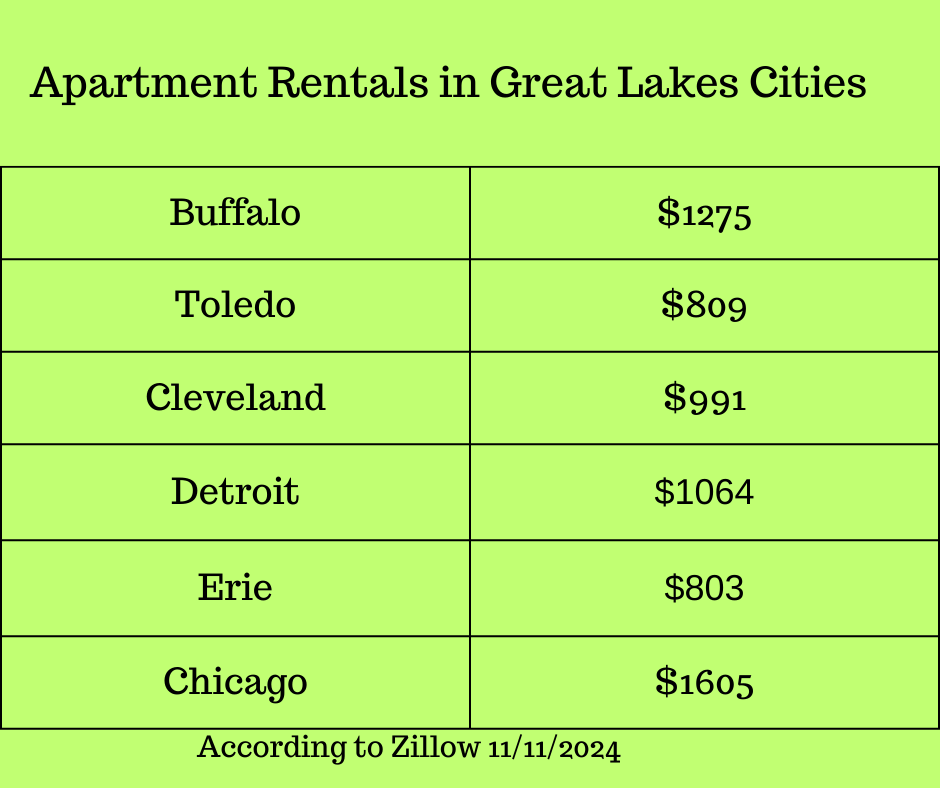Great Lakes Water Conference focuses on climate migration
TOLEDO – Are Toledo and other Great Lakes cities ready to welcome people moving away from challenging climate environments, like Asheville, N.C.; Fort Myers Beach, Fla.; Rolling Fork, Miss.; and Ruidoso, N.M.?
On Friday, the University of Toledo’s College of Law hosted its 24th annual Great Lakes Water Conference via a Webex presentation. The focus was on climate migration.
Many people, referred to as climate migrants, are on the move in the United States because of hurricanes, extreme flooding and wildfires. Remember Katrina hitting New Orleans, forcing thousands of people to move to Houston permanently? In 2022 and 2023, approximately 3 million Americans were displaced primarily by hurricanes, floods and fires.
One of the conference speakers, Evan Zoldan, professor of law at the University of Toledo College of Law, mentioned that because of its advantages, the Great Lakes region may become an important destination for climate migrants moving away from inhospitable environments. Great Lakes cities generally have abundant water, a more stable climate and affordable housing compared to many parts of the country.
Beth Gibbons, director of the Resiliency Office, Washtenaw County in Michigan, cautioned that the Great Lake’s region, although it has a more stable climate than much of the rest of the country, does have its own climate issues. The area is warming quickly, there has been a significant increase in precipitation and there has been a big increase in severe storms.
Gibbons also stated that the Great Lakes cities were not prepared to receive large numbers of climate migrants.
A lot of work needs to be done for cities like Toledo to prepare for the changing climate and potential climate migrants. Toledo is working on many of the following recommendations. I’ve gathered from several sources to cope with the changing climate and prepare for climate migrants.
Include citizens in decision-making so that current at-risk residents are not uprooted, new residents are welcomed and diversity is encouraged.
Develop affordable dense housing, such as high-rise apartments, duplexes and row homes for current residents and climate migrants within city limits, rather than sprawling single-family homes. Toledo has reasonably priced housing.

Develop green infrastructure, such as restoring wetlands to reduce flooding. Toledo has worked to install green infrastructure and manage stormwater. The city has a grant program to help homeowners stop sewage from backing up into their basements.
Defend and conserve freshwater resources. Lake Erie and the Maumee River are wonderful resources that need defending.
Increase renewable energy capacity to meet increased demand sustainably. The Overland Industrial Park Solar Array is a recent addition to Toledo’s alternative energy supply. Toledo has a growing solar industry with several companies in the area.
Put city cooling programs into effect to lessen the impact of heat islands. Toledo has begun a heat island mitigation program and is in the process of planting 10,000 trees.
Improve walkability and public transportation. Toledo has been working hard to become more walkable and bike-friendly. The city says the Glass City Riverwalk will be the nation’s second-largest. The Toledo Area Regional Transit Authority will put 11 electric buses into service in 2025. Amtrak provides train service for Toledo.
Upgrade emergency response plans for climate/weather emergencies. Toledo is focused on mitigating increased rainfall and flooding, overloading storm sewers, runoff and sedimentation and property damage.
Develop job training programs. Toledo has several agencies working in this area, including OhioMeansJobs, Lucas County, Owens Community College, Goodwill Industries of Northwest Ohio, Harbor’s Career Services Program, Ohio to Work Initiative, Cherry Street Mission Workforce Development, WorkReady Lucas County and University of Toledo’s Rocket Career Center.
Amenities that contribute to quality of life. Toledo is well situated in this regard. We have so much: the Toledo Metroparks, Toledo Library, Toledo Museum of Art, Toledo Zoo, many arts organizations and sports teams, public and private school systems, and our institutions of higher education.
If you are an individual searching for a good place to relocate because your life has been disrupted by challenging environmental conditions, Toledo is worth a look.





















